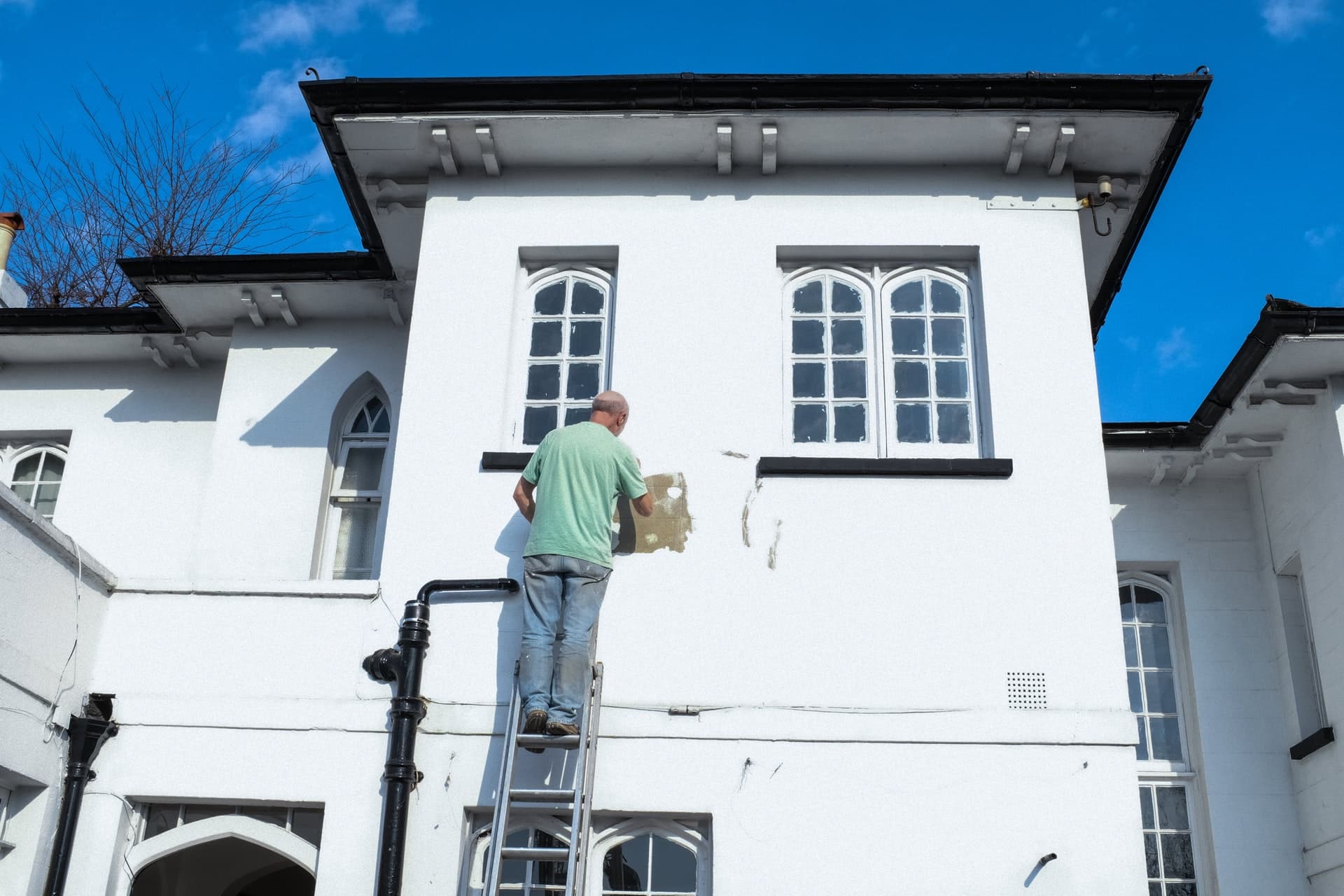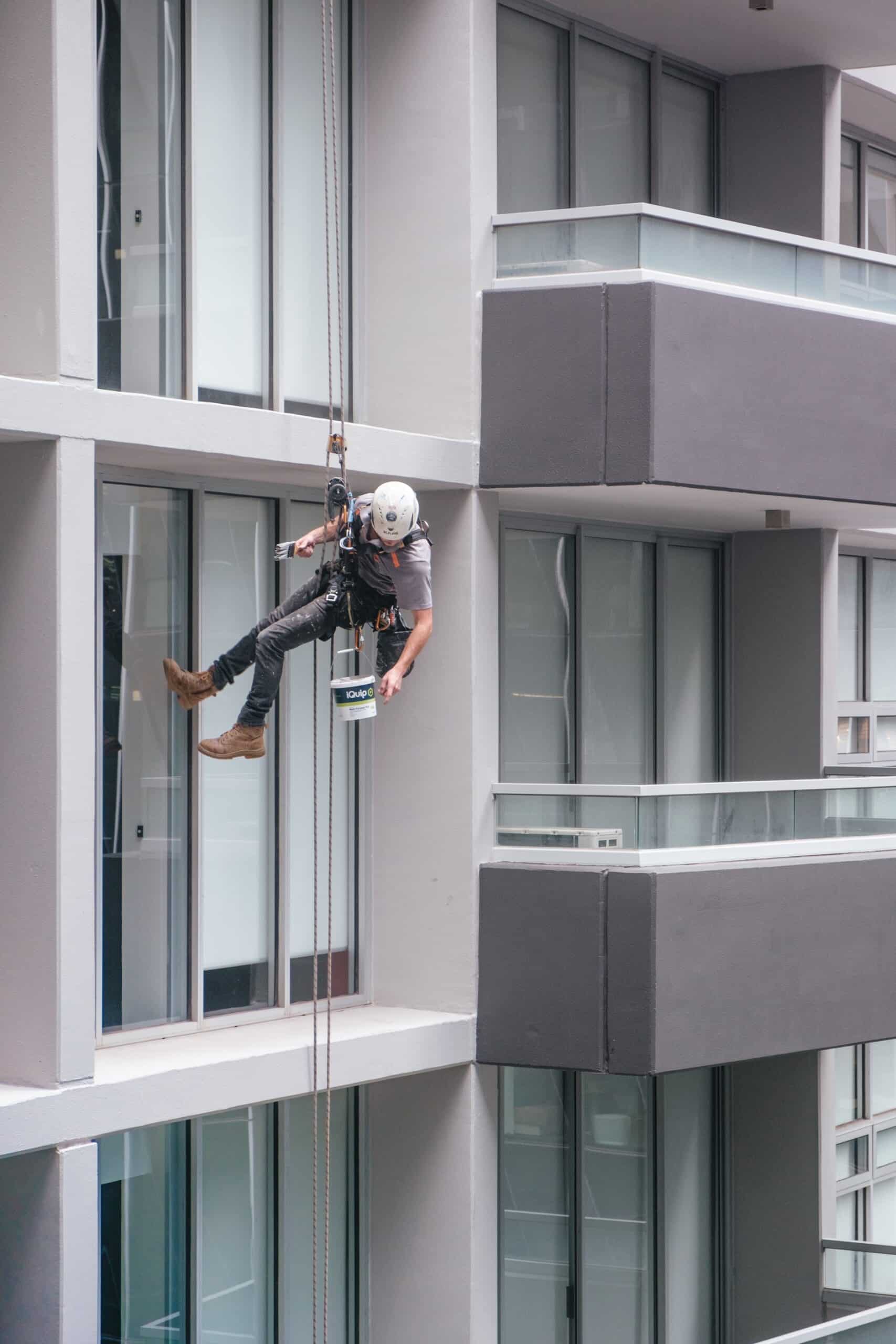Many people think all types of painting are the same– whether residential or commercial. In reality, painting your residential property is very different from painting a commercial building.
These two services require different tools and skills and pose unique challenges. Here, we will discuss the notable differences between residential vs. commercial painting.
IMAGE: UNSPLASH
1. Size Of The Project
Residential painting involves houses, condominiums, apartments, and other living spaces. The service may cover only the exterior, interior, or both. Meanwhile, commercial painting typically involves larger projects such as buildings, retail shops, shopping malls, offices, and industrial buildings.
2. Number Of Painters
Due to the usually larger project size, commercial painting requires more painters to meet timelines. Because residential painting typically has a smaller scope, it doesn’t require as many painters onsite.
3. Equipment, Tools, And Materials
Residential painting projects only require common painting tools and materials. These include paintbrushes, painting trays, rollers, drop cloths, step and rolling ladders.
There are also different types of paint for residential projects– oil-based, water-based, or latex-based. And then there’s paint sheen, which may range from glossy to flat. Glossy paints are shinier, while flat paints absorb light and can effectively hide imperfections on your walls.
Meanwhile, commercial painting requires more experienced professionals who can work with various types of surfaces such as concrete, wood, marble, and metal. This means they also need to know how to use more complex equipment such as pressure washers, scaffolding, paint sprayers, as well as commercial and industrial-grade paints, primers, and other specialty coatings.
4. Services Offered
There are some services offered by commercial painting contractors that residential ones don’t perform. These include:
- Epoxy coatings
- Sandblasting
- Metalizing
- High-durability coatings
- Masonry coating
- Roof coatings
- Stenciling
- Metal door paintings
While residential painters typically work with your siding, deck staining, and trim, they may also perform services such as:
- Wallpapering
- Plastering
- Drywall repair and installation
- Cabinet painting
- Garage painting
5. Schedule Of Painting
With commercial painting, work is done according to the schedule of business operations. It can be a bit more challenging for businesses, as most want to stay operational even while undergoing a renovation project. Business owners may request painters to work on the project without interfering with their working hours.
At times, the paint job can be completed during business hours by cordoning off the areas that are already painted. If this is not feasible, painting can be arranged outside regular operating hours, such as at night or on the weekends.
For residential painting, although the scheduling may also depend on the client, work is usually done on the weekdays, for eight hours a day. If you want to complete the project faster, you may ask them to work over the weekends.
6. Project Management
Because commercial painting may disrupt business operations, the contractor must complete the project efficiently. Delays are costly for the company, so project management is of utmost importance. This is especially true for large-scale projects where all parties must work together in managing their time and resources to meet the timeline and stick to the budget.
Meanwhile, the approach to project management is more relaxed for residential painting projects. The main focus would be to meet the homeowner’s expectations.
7. Risk Involved
The work environment for residential painting projects is much more predictable. There’s also greater control due to the smaller project size and one-on-one relationship with the client.
Meanwhile, working on commercial painting projects involves various moving parts. This means there are more chances or ways things can go south. Changes in schedule or workforce may occur anytime, and there are strict safety protocols by local and national governments that contractors must comply with.
8. Experience
Residential painting professionals know exactly what type of paint homeowners love and can guide them on the right colors to achieve their desired look and feel. Furthermore, residential painters have strategies to protect your flooring and furniture.
Meanwhile, commercial painting requires a greater focus on safety. It takes endurance and experience, especially for large commercial painting projects. Commercial painting is rarely a DIY project. The appearance of your business premises is a crucial part of your branding and must be entrusted with professionals.
Final Thoughts
Not all painting contractors are the same. So before hiring professional painters, it’s crucial to know what type of painting they specialize in.
If you’re looking for a painting company that can do both expertly, Soho Painters can be your trusted provider. Whether it’s a quick home painting job or a large-scale project for your business premises, we can provide the best painting service to transform your space.
Get in touch with Soho Painters today to learn more about how we can help you! The ideal commercial painter is the one who is willing to adapt to the schedule of business owners so they can complete the project without causing disruptions to the normal business flow.
IMAGE: UNSPLASH
If you are interested in even more lifestyle-related articles and information from us here at Bit Rebels, then we have a lot to choose from.


COMMENTS